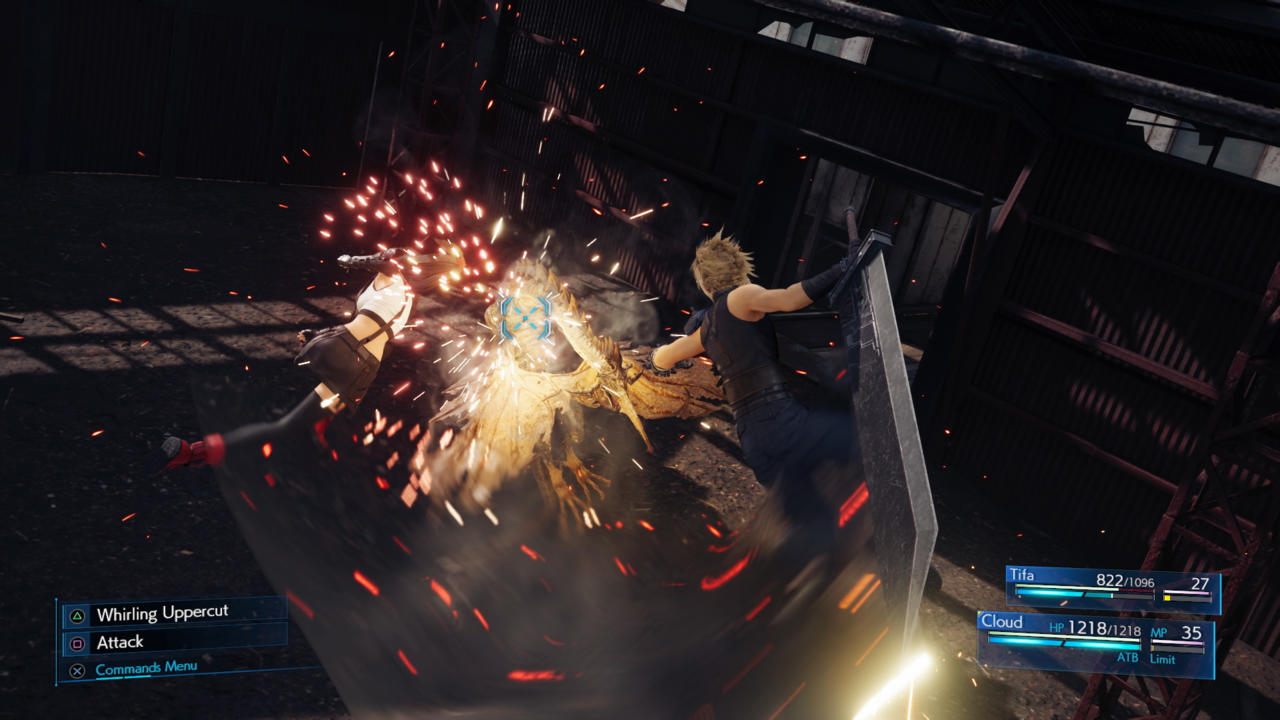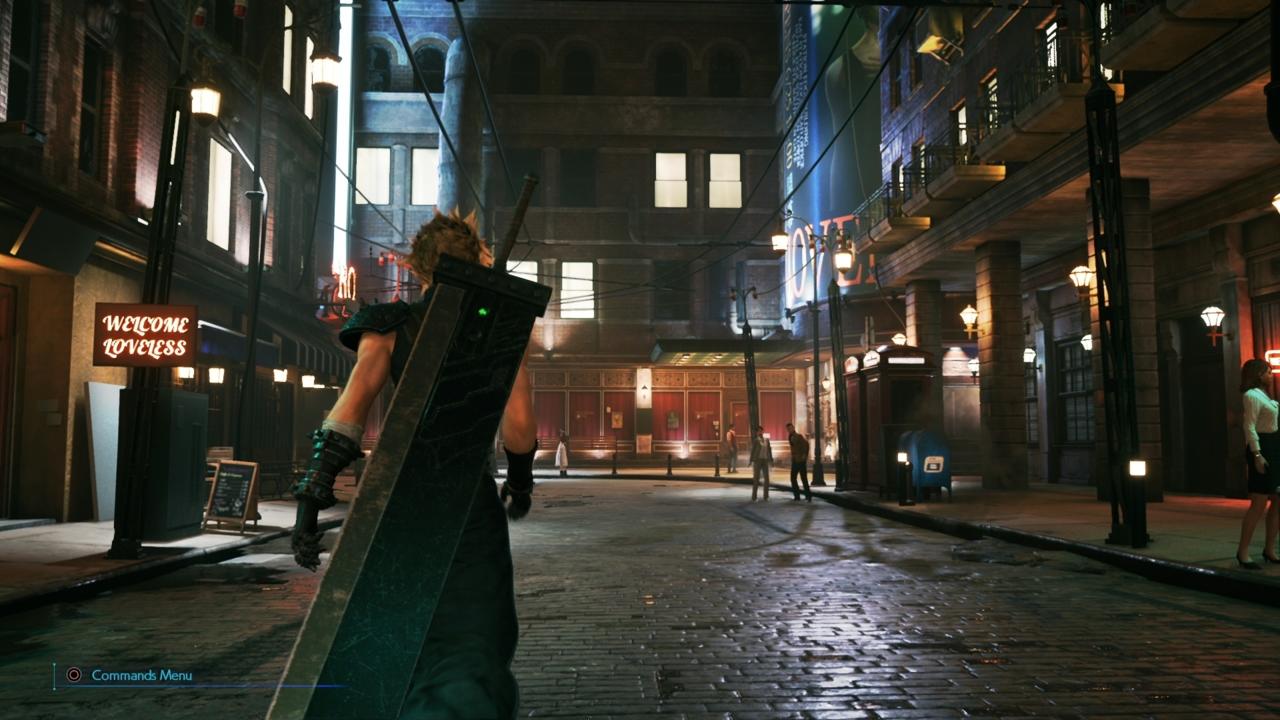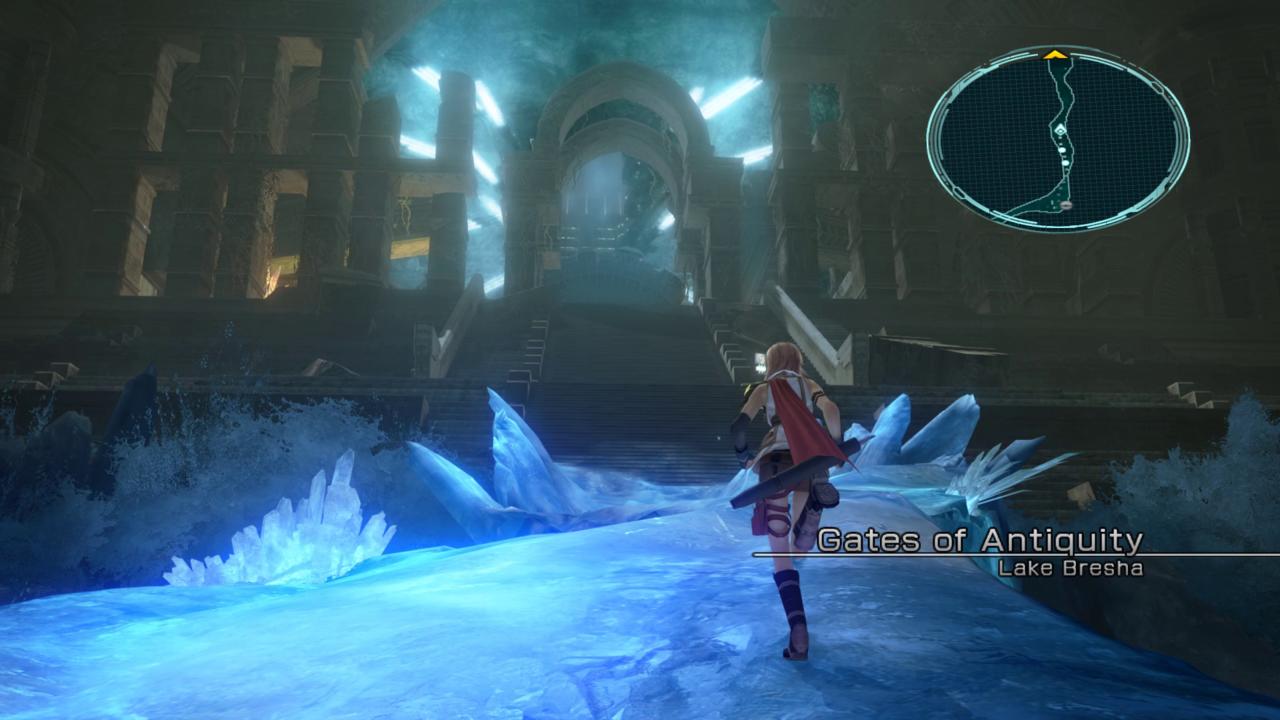Final Fantasy XIII Staggered So FFVII Remake Could Run
Lightning strikes and Cloud forms to weather the storm of modernizing a classic.
Final Fantasy VII Remake is getting some deserved praise and attention, both as a recreation of a beloved classic and as a finely constructed series entry on its own. It stays true to the source, yet boldly diverges from the 1997 original to enrich what was just a portion of the overall story. Since I suspect FFVII Remake is wrangling many folks who were either lapsed fans or are newcomers, you may not be aware that its influences in gameplay flow and systems can be traced back to another Final Fantasy that dared to be radically different.
So, let me tell you all about Final Fantasy XIII. It's one of the more divisive entries for sure, but I've found good reason to give it a closer look and put my current playthrough to good use--in playing both games side-by-side, the parallels between the two become quite clear. From the stagger mechanic that makes combat click to the controlled pace of linear sections, FFVII Remake borrows from FFXIII when it needs to most.
Staggering Similarity
Staggering enemies was introduced to the series in FFXIII as a way to incentivize tactical considerations outside of simply hitting elemental weaknesses and managing party roles. As you pile attacks onto an enemy, their "chain bonus" bar fills (also a multiplier for damage). Once it's filled, the enemy is then staggered and takes on significantly more damage for as long as the stagger state is active. Some attacks, or combination thereof, contribute more to the chain bonus bar, but once the stagger is in effect, the game encourages you to command the party to take advantage and lay an increasingly hefty smackdown. However, enemies don't freeze or stun when staggered, they continue attacking. So while sheer aggression might be best, you can't completely forget about party preservation. This system gives you something to strive for and exploit in battle, and it's imperative to learn, otherwise you'll struggle to defeat mid-to-high-tier enemies.

FFVII Remake doesn't necessarily take that system and adopt it one-to-one, but the core principles are the same. You pile on damage and hit with specific attacks to increase an enemy's stagger gauge, and once it's filled they'll take on a damage multiplier, giving you that much-needed window of opportunity to effectively wail on them. It's satisfying to smash on Shinra's worst with heavy Punisher stance swings from Cloud's buster sword, especially when you're getting a sweet 160% damage bonus (and even higher later in the game) as they helplessly lay waiting to recover. Though it's not important for low-level goons, like in FFXIII, it's wise to factor staggers into your strategy for tougher foes and bosses.
While FFVII Remake's stagger effect stuns the targeted enemy, managing an aggressive approach remains the challenge since you're often dealing with multiple threats in real time. Sure, FFXIII's menu-based role switching is a far cry from the action focus we have now, but the two games share the same balancing act; assessing opportunities to build towards and exploit stagger while keeping in mind your ATB resources and each party member's status amid chaotic fights.

Admittedly, it's a bit of a trip bouncing between FFXIII and FFVII Remake as it reinforces just how incredible that latter's system can be by aptly fusing multiple combat styles. As much as I'm loving Lightning's journey (and realizing the Vanille haters were all wrong) and the combat system within, it now feels like an experiment for future mechanics. The same can also be said for FFXV, the series' first switch to fully real-time battles--that was a fun system to work with but it had its share of missing pieces, almost a seemingly necessary half-step before FFVII Remake.
The Only Path Forward
FFXIII is often criticized for its explicitly linear structure through a large portion of the game, only occasionally offering a short branching path for a treasure chest and not much else. Many decried the lack of lively towns, dingy dungeons, and an overworld with secrets tucked away, which were kept under wraps until the game finally opened up multiple hours in. I do understand the disappointment that comes from having a game that heavily relies on a critical path alone, but linearity isn't inherently bad. As a matter of fact, it's necessary to create dramatic, well-paced scenarios and set piece battles, which FFVII Remake executes so remarkably.

FFVII Remake clearly does a whole lot more than draw a path for you to trudge through. Midgar features hub areas full of life, such as the red-light district of Wall Market and downtrodden slums of Sectors 5 and 7. The sidequests therein build up its characters, and the small degree of freedom to roam around lets you appreciate Midgar like never before. However, the game knows when to reign it in and establish long, linear sections for story critical quests, adopting the flow and structure that feels unmistakably familiar to my current FFXIII experience. For both games, there isn't much in the way of exploration, puzzles, or labyrinthine layouts in between fights, rather the grandiose scenery does some of the heavy lifting to pull you in.
In FFVII Remake, hard-fought battles are interspersed with slick camera work and cinematic cutscenes while the emphatic orchestral arrangements of its classic tunes can quickly adapt from moment to moment. It hardly ever misses a beat as you go from one big battle to the next. FFVII Remake isn't afraid to put you on rails for its most pivotal moments--it essentially takes full control of when and where you see its characters shine brightest--and it's better for it. Of course, the 10-year-old FFXIII doesn't do this nearly as well as a pristine 2020 release with powerful nostalgia to back it up. But the consistent shift between trekking forward, fighting, and brief yet effective exposition, you realize that the shared DNA is certainly there.

The Series Within
Outside the games themselves, we're looking at multi-part saga within a series. Obviously, FFVII Remake has a specific skeleton already built from its original game from 23 years ago, however, Square Enix's ambitions lie within each subsequent release continuing a deeply fleshed out story. Whether it be a hit or miss in your eyes, FFXIII was the franchise's first attempt at deliberately breaking off a single numbered entry into a series of its own (not counting the one direct follow-up with Final Fantasy X-2 or FFVII spinoffs). Perhaps there are lessons there that Square Enix is taking into consideration for when Cloud returns in the next chapters of FFVII Remake.
As someone who's playing the two games simultaneously at the moment, it's apparent that FFVII Remake takes certain elements of FFXIII's design philosophies and refines them to expertly fit a reimagining of a 1997 classic. I'm loving both FFVII Remake and FFXIII, oftentimes for reasons completely different, but sometimes for ones so similar.
Got a news tip or want to contact us directly? Email news@gamespot.com
Join the conversation